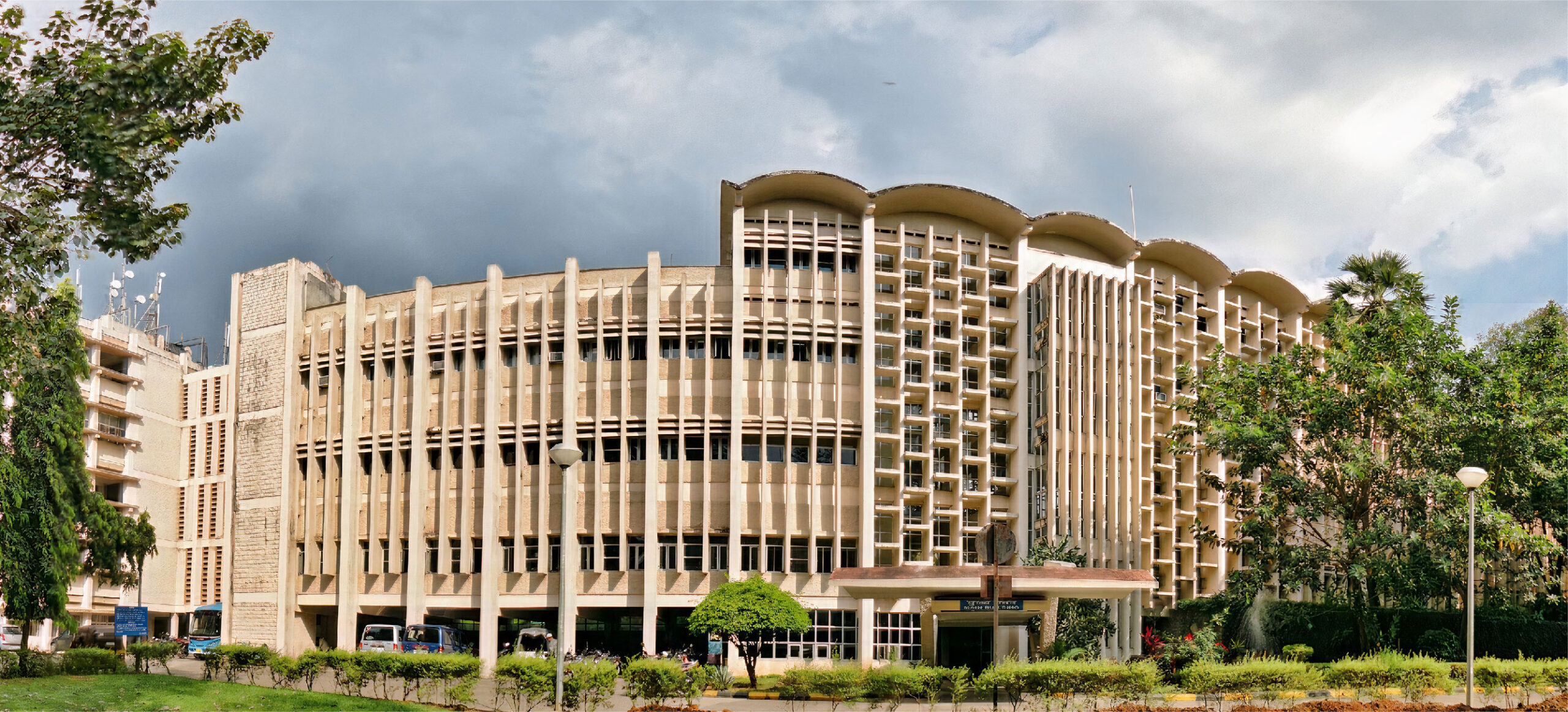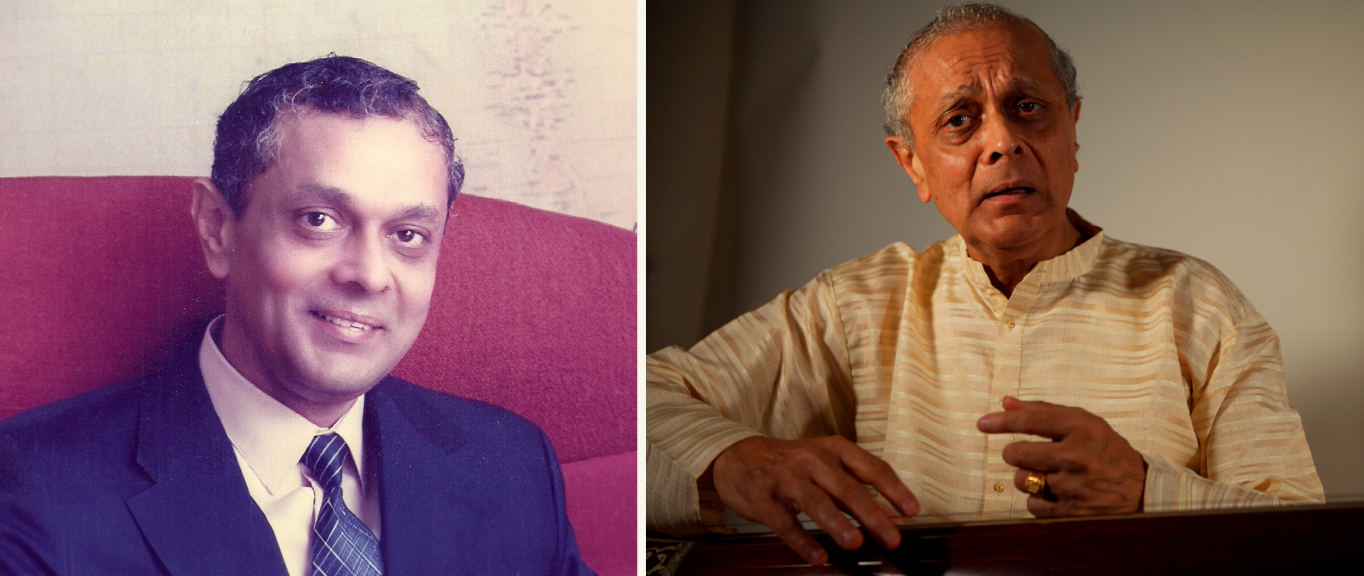We are delighted to feature Dr. Arun Dravid in the latest edition of the Chai Aur Samosa Pe Charcha series for the Dean ACR newsletter.
Dr. Dravid’s extraordinary journey exemplifies the spirit of IIT Bombay—an institution that not only shapes world-class engineers but also nurtures individuals who excel in diverse fields. From topping his class in Chemical Engineering to becoming a torchbearer of Hindustani classical music, Dr. Dravid’s story highlights the versatility and holistic development that IIT Bombay fosters in its students. His achievements across such distinct domains are a testament to his perseverance, dedication, and relentless pursuit of excellence.
His diverse journey provides a rich narrative that we are delighted to highlight and share with the extended IIT Bombay community.
**********
- Once again, thank you for speaking to the Dean ACR newsletter, Dr. Dravid. We would like to begin with a question that we ask all our alumni. Can you share any fun memories associated with IIT Bombay’s chai and samosa when you were a student?
There are many fond memories. First and foremost, is after admission to IIT Bombay, my great dilemma was continuing my training in Hindustani classical music. I had already been training for over ten years with two great Gurus, the latter being the legendary Gaanasaraswati Padmavibhushan Kishori Amonkar, arguably the greatest female vocalist of the last century. The IIT Bombay campus was strictly residential, and no student was allowed to leave the campus except during the summer and Diwali holidays. My pursuit of music required me to visit South Mumbai each weekend to get 4-5 training sessions. Prof. N. R. Kamath, who was the Deputy Director and Head of the Chemical Engineering Department, came to my rescue. He asked me to apply to the Director, Brigadier Bose, to make an exception to the rule and grant me special permission to visit South Mumbai (where I also had my home) each weekend. After a lot of begging and pleading, the Director then agreed on one condition. Since I was the topper in the class, the condition was that the special permission would be withdrawn if I slipped to the second rank in any of the semesters. I accepted the condition, and with God’s grace pursued my music training till the end of the final year.
One other fun recollection is that amongst all the dozens of us newcomers, I was the only student that the seniors allowed to escape harsh ragging acts by singing a Natya-Sangeet which was child’s play for me.
The third sweet memory is of the prolonged strike by mess and kitchen staff in Hostel 4. During the whole semester, some of the enterprising hostel-mates took it upon themselves to keep the mess running by allocating responsibilities to each one for separate functions in the mess. These were supervising supplier’s groceries, managing the inventory of food raw materials, allocating the daily rations to the kitchen group who would manage cooking and dish-washing (by hand of course) of the soiled dishes. This was a-four-times-a-day affair– breakfast, lunch, afternoon snack and tea, and dinner.
There are many more fun memories, but the once above stand out.
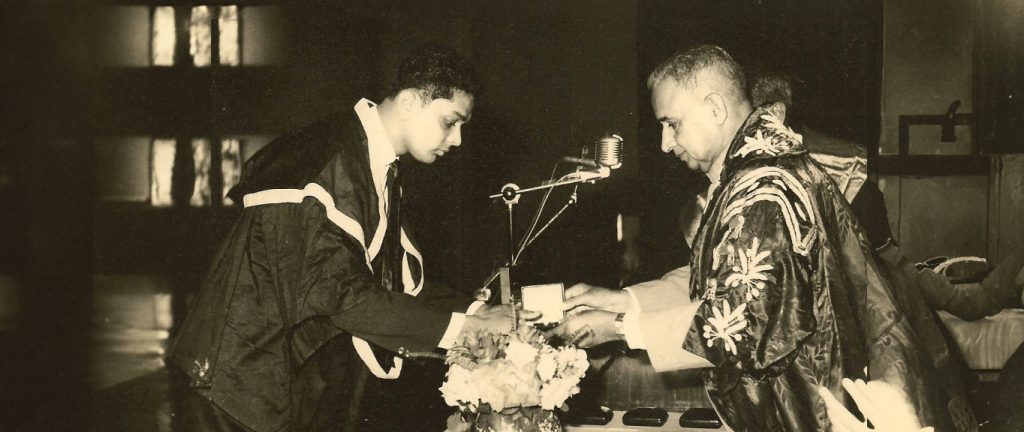
Dr. Dravid receiving the President of India Medal – IITB 1966
- How did your time at IIT Bombay shape your academic (from topping your classes to earning a gold medal) and professional journey?
I sometimes still don’t believe I topped my class each semester despite essentially doing almost no studies on the weekend because of my five music classes from Friday evening till Sunday evening. In fact, on Sunday evening my class would end by 7 pm, and I had to travel from South Mumbai by train up to Vikhroli. If I missed the last Institute bus from Vikhroli to the Main Building then I had to walk about 3-4 km late at night from Vikhroli to the hostel. I was very focused during the five class-days on classes, homework, and regularity with my studies. My classmates and hostel-mates were envious of me sneaking away to South Mumbai each weekend, and yet not falling behind in my studies! God must have been very kind to me! This discipline and sharp focus on the task at hand was the secret of my success in my later professional career and my parallel career in vocal music.
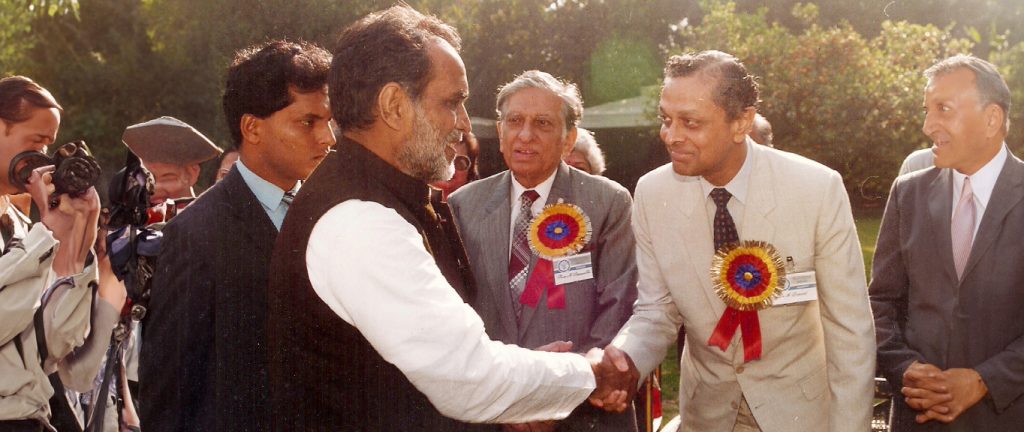
Dr. Dravid receiving the Vijay Ratna Award from Mr. Chandrashekhar, Prime Minister of India, 1990
- Were there any professors or mentors at IIT Bombay who significantly impacted you? Can you share any anecdotes or lessons that stayed with you?
My greatest mentor was Prof. N. R. Kamath who was the Head of the Department of chemical engineering. His approach to teaching, sense of humour, kindness towards students, and high moral values were an inspiration and a guide for me not just during my years at IITB, but also later for several years when I regularly visited his home in Sion to seek advice and blessings from both him and his wife, Mrs. Ruzena Kamath.
I am equally indebted to Professors K. A. Naik, M. C. Dwivedi, and P. S. Murti for their excellent credentials and teaching.
One incident remains etched in my mind. Once Professor Kamath and I were on our way to Mumbai. We both got onto the bus at Powai to go to Vikhroli. Since we were both standing on the bus, when the conductor approached us for the ticket, I bought two tickets for both of us. When Prof. Kamath realised it, he was very upset with me, scolded me, and made me take back the ticket fare from him. He told me, that no matter how high you might be in society, you must never come under anyone’s favour, small or big. This is a lesson I have never forgotten. He was a man of such great principles.
- Your career has been distinguished with several awards and a significant role at Jacobs Engineering. What would you say was the most fulfilling aspect of your career in engineering?
There are two most fulfilling aspects of my career with Jacobs Engineering. In my early career, I was fully in a technical job, as Manager of Process Engineering. During many years in that position, I once supervised a project sponsored by a company called Hico Products Ltd. It involved the production of methyl chlorosilanes. The technology for this process is very closely held in the world, and no company will sell its technology. Hico decided to develop the technology from first principles, first on the laboratory scale and later on a pilot plant scale. The National Chemical Laboratory (NCL) of Pune was our partner in this development. After the sustained efforts of all partners, we finally developed the technology and built a commercial plant near Khopoli in Maharashtra to produce these products. This was Asia’s first plant and the World’s 11th plant. I received the NOCIL Award from the Indian Institute of Chemical Engineers for this effort.
Later when I climbed the career ladder and became Chairman and Managing Director of Jacobs Engineering, my greatest satisfaction was in creating a 2000-person company that lived like a closely-knit family. While we operated very professionally, under my leadership, we created a culture of utmost honesty, ethically high values, productivity, and efficiency in all operations. For this career, I received the Godrej Award for Lifetime Achievement from the Indian Institute of Chemical Engineers. I also served this Institute as a Council member, Vice President, and President during my long career with Jacobs Engineering.
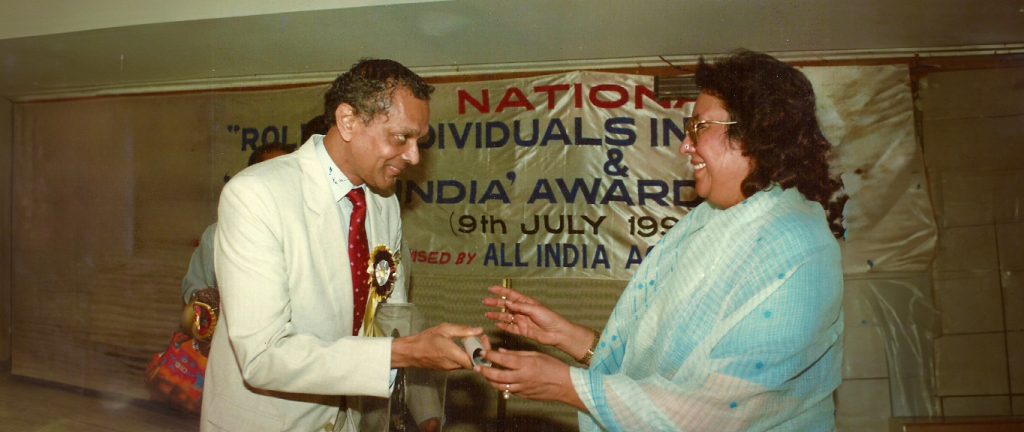
Dr. Dravid Receiving the Gem of India Award from the Vice President of India, 1991
- How did your experiences as a visiting faculty member at IIT Bombay and ICT shape your perspective on teaching and mentorship?
I have always been fond of teaching in my life. Particularly, teaching at my own Alma Mater was a uniquely satisfying experience for me. As a visiting faculty member at IITB’s Department of Chemical Engineering, I taught regular courses as well as elective courses at the undergraduate and postgraduate levels. Similarly, I was also a Visiting Professor at the Institute of Chemical Technology (ICT, previously known as UDCT). I taught Chemical Engineering Economics, Project Engineering, Chemical Thermodynamics, and Thermodynamics of Mixtures.
I always received enthusiastic responses from the students in my class. To judge my performance as a teacher, at the end of each semester, I used to require a performance evaluation sheet from each student anonymously. I was always pleased to get very high marks from each student. To save travel time, I held a three-hour lecture at IITB once a week for the whole semester. The timing was 2-5 pm with a short break of ten minutes. This was right after lunchtime. Yet, I had over 95% attendance for each weekly lecture. Not only that, my class-notes were circulating among future students for many years after I stopped teaching! This was a matter of great happiness for me.
- Your passion for Hindustani classical music is as remarkable as your engineering career. Can you tell us about a particular moment in your musical journey that holds special significance for you?
I was at a crossroads after I stood first at the Bombay University Inter-Science Examination in 1962. I was already in a serious pursuit of Hindustani classical vocal music at that time. Whether to choose Engineering or Music was my biggest dilemma! I took the plunge into Engineering, and so moved to IITB Campus. However, I did not want to give up on music. My Guru Gaanasaraswati Padmavibhushan Kishori Amonkar bluntly told me that she would stop teaching me if I did not come for classes at least once a week. I have already narrated how I managed to continue my training. For me, it was not a casual hobby. It was serious training to be a professional level performing vocalist. Except for my later years at MIT for doctoral studies and seven years thereafter for professional experience, I never took a break from music.
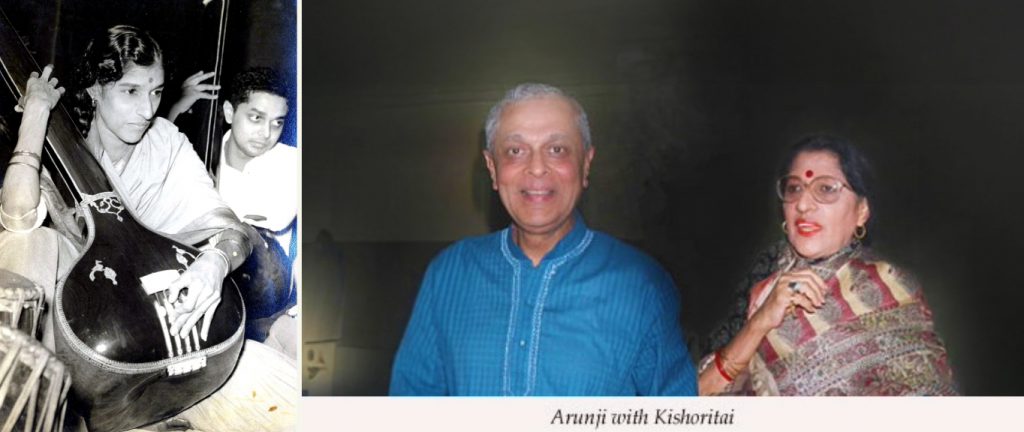
Dr. Dravid accompanying Guru Kishori Amonkar Dr. Dravid with Guru Kishori Amonkar
The most significant event in my musical life was the slow evolution of my role in a Guru-Shishya Parampara with my Guru Gaanasaraswati Kishori Amonkar. This Parampara means one does not treat it as only a student-teacher relationship. Instead, it evolves into being a part of the Guru’s life, sharing the Guru’s moments of happiness and sadness, and a general approach to life and values in life through this relationship. Thus, I believe I not only could accomplish a high professional level standing as a vocalist of the Jaipur-Atrauli Gharana, but also as a person with a broad outlook towards life. In fact, this vision has benefitted me even through my engineering and management career.
- How has your background in engineering influenced your approach to music, particularly in understanding the scientific basis of musical notes?
A strong background in the physics of sound, and also in simple mathematical concepts, have been immensely useful for me in understanding how the notes (Swaras), and micro-notes (Shrutis) play a role in the richness of Hindustani music. Many artists who do not have that background are not aware of the origin of such richness of our music.
- Can you quickly take us through the focus of your NR Kamath lecture titled ‘Scientific Basis Of Musical Notes’ that was held on campus recently?
I started with the basic sources of sounds in our life, both musical and non-musical. I then focused on how a musical sound is produced. I outlined how the sequence of ascending and descending notes of music can be derived from the physical and mathematical analyses of sound wave production, and explained how the micro-notes are formed. I then narrated how our saintly scholars 2000 years ago had understood and analysed this theory. I hope this lecture will continue to resonate with the audience who attended it, particularly at IITB, because most people there already knew the principles of physics of sound and elementary mathematics.
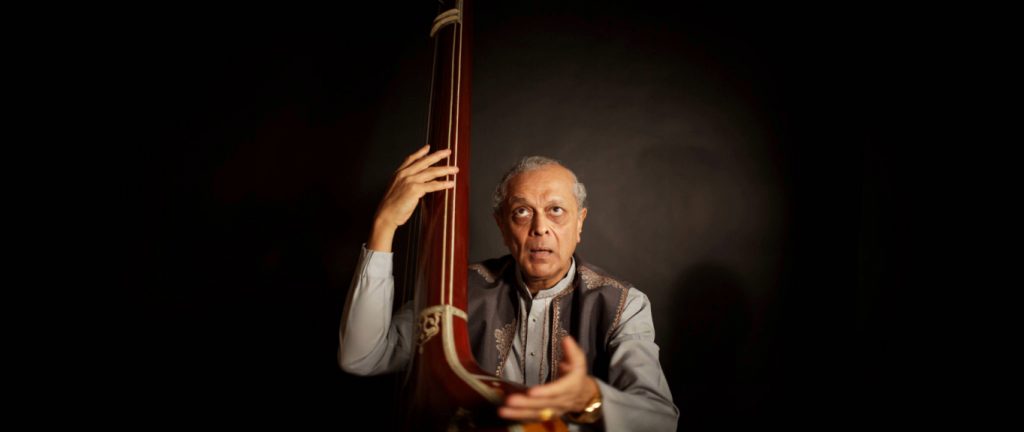
Dr. Dravid in Concert
- You worked in the very acclaimed Marathi film ‘The Disciple.’ Can you tell us more about that very unique experience? Do you plan to act in the future?
I was persuaded to accept the role of the character “Guruji” in this film much against my wish because I had no prior experience in acting, and also because, with my two careers (professional and musical), I was already short of time for a third career. Due to persistent persuasion by the director of the film, Chaitanya Tamhane, I finally succumbed to his wishes and accepted the role. It was a unique experience, but also very tiring. To learn the script by heart, to record my own songs, and to practice lip-synching them for the shooting of the scenes, was all very strenuous. Finally, since all scenes were “On Location”, and not in a studio, there were more challenges. Even a five-minute scene used to take 12 hours to shoot. Thus, it was a very tiring experience. I don’t think I would want to act again, even though I do get occasional inquiries from people who are casting for their films. I am delighted that the film is still available on Netflix after four years!
- Finally, what are your dreams and hopes for your cherished Alma Mater in the upcoming decade?
My dream for my Alma Mater is to be useful in any possible way for the growth and improvement of the Institute, as well as to give the fruits of my two long careers to students which might help them in their own careers.
**********
Thank you, Dr. Dravid, for sharing your incredible journey with us. Your experiences serve as an inspiration to the IIT Bombay community, illustrating how both the Institute’s ecosystem and your hard work have helped you thrive in a wide spectrum of fields. Whether it’s engineering, music, or leadership, your dedication, coupled with the foundation provided by IIT Bombay, has empowered you to reach new heights of success. We are proud to call you one of our own and look forward to seeing how your passion and expertise continue to shape the future.

Annual Activity Report 2024-25
View Now View NowEngage with us
We welcome your ideas and suggestions and encourage you to get in touch with us at

